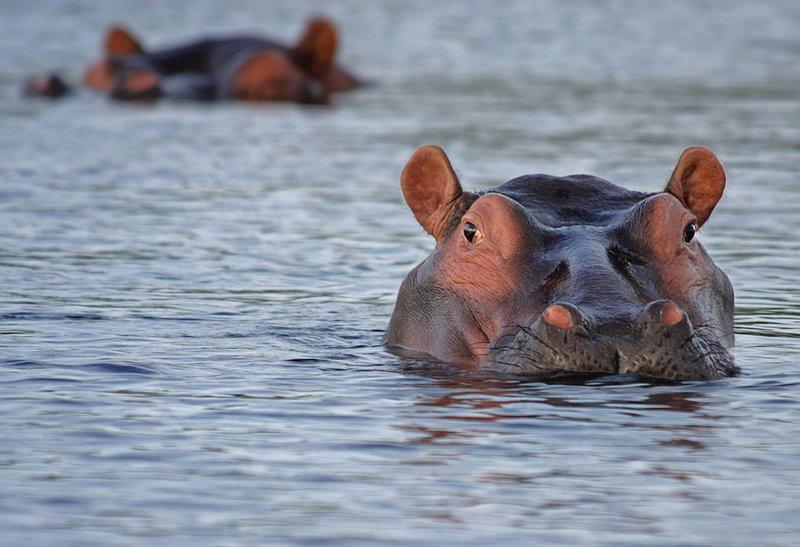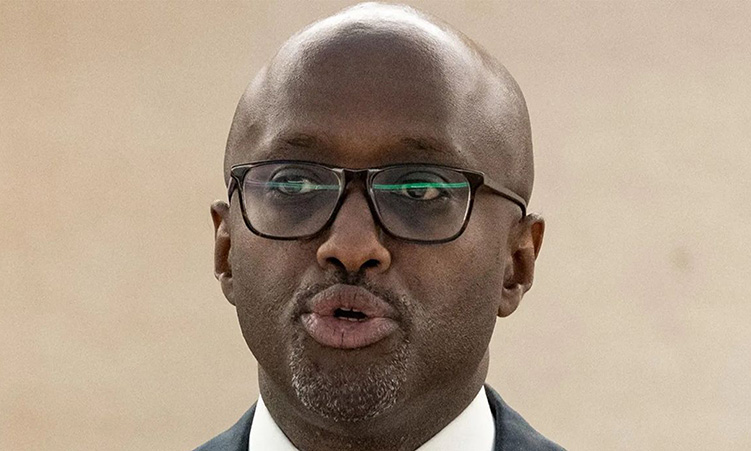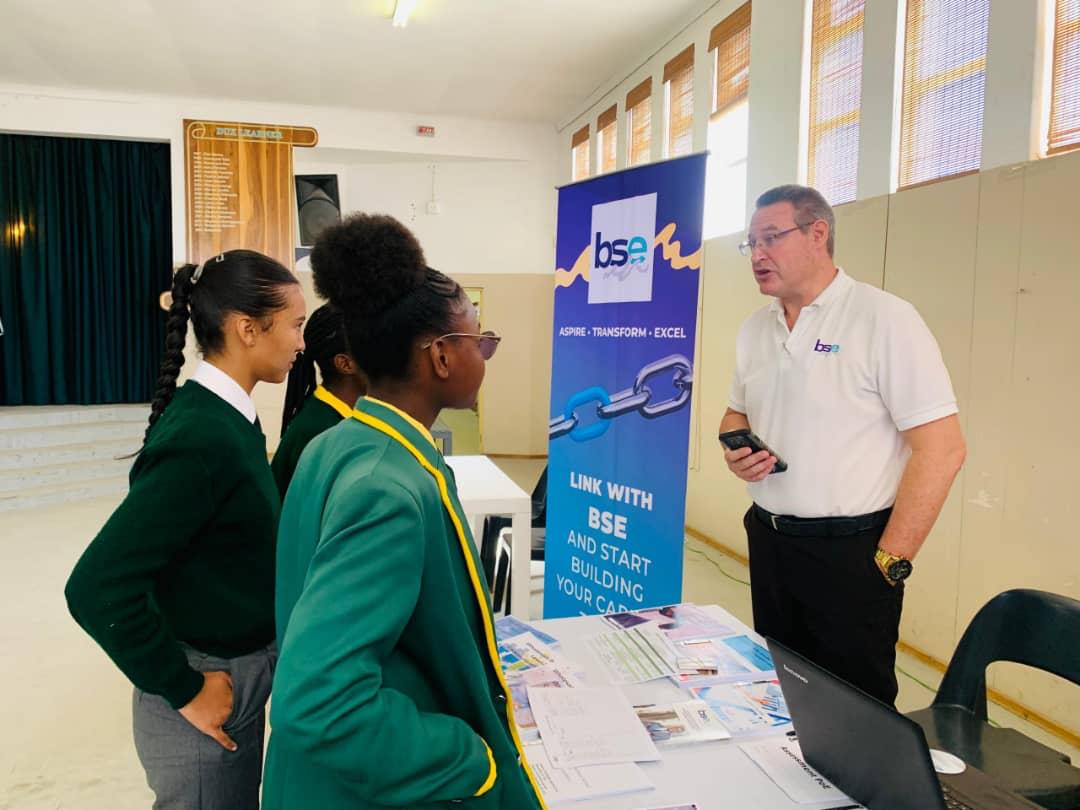AFTER more than six and a half years in prison, the conviction and 20-year jail term of a man who claimed to have been fast asleep while an armed robbery was taking place around him was set aside in a split decision of the Supreme Court last week.
Elifas Nghipandulwa is now a former prison inmate. He was released from jail on Monday last week – after the Supreme Court decided in a split decision to allow his appeal against the conviction and sentence that he received in the Windhoek Regional Court at the end of March 2003.Acting Judges of Appeal Petrus Damaseb and Fred Chomba ruled in favour of Nghipandulwa’s appeal. In a minority judgement, Acting Judge of Appeal Simpson Mtambanengwe dismissed the appeal.Nghipandulwa was convicted on a charge of robbery with aggravating circumstances.He and two-co-accused, George Gawaseb and Jeremia George, stood trial on a charge that they robbed two Zimbabweans in Windhoek on December 9 2001.The robbery took place when the Zimbabweans, father and son Morgan and Archibald Matangi, who were travelling to Gobabis on their way to Zimbabwe, were picked up and offered a ride to Gobabis by Nghipandulwa’s two co-accused.According to the Zimbabweans, Nghipandulwa appeared to be asleep in the car that picked them up. During the trial, Nghipandulwa also claimed that he was asleep throughout, until after the robbery against the Zimbabweans has been committed.The robbery took place after the car, driven by Gawaseb, was parked in the veld , with the excuse that George wanted to smoke some dagga before they could continue with their journey.George instead took out a firearm that Gawaseb was carrying. The Matangis however fought back, with Morgan Matangi getting hold of the firearm and trying to run away from the scene.Gawaseb and George however caught up with him about 150 metres from the car and proceeded to rob him, stealing some N$7 500 from him.Back at the car Matangi Jr was trying to unload his and his father’s luggage from the vehicle’s boot when Nghipandulwa confronted him, preventing him from taking the luggage and also demanding to know from him why he and his father had taken ‘our gun’ from him and his co-accused.When Matangi Sr later returned to the car with the Police, Gawaseb and Nghipandulwa were arrested at the scene. They had in the meantime been searching for the vehicle’s keys, which had gone missing during the robbery.Nghipandulwa claimed during his trial that after a night of heavy drinking he had been asleep in the car when the Matangis were picked up. He was also asleep during the robbery, he claimed. When he woke up and found a strange person trying to take bags out of the boot of the car, he thought Matangi Jr was trying to steal from the car, and that was why he confronted him, he claimed.Neither the Regional Court Magistrate who presided at the three accused men’s trial, nor the Judge who dismissed an appeal against their convictions in the High Court in March 2005, was convinced of Nghipandulwa’s claims of innocence.Acting Judge of Appeal Damaseb, with Acting Judge of Appeal Chomba agreeing with him, however took a different view of the matter.The trial Magistrate aptly characterised Nghipandulwa’s sleep in the car as a ‘drunken stupor’, Judge Damaseb remarked.If, as was suggested by the prosecution, Nghipandulwa only pretended to be asleep and actually was aware of the robbery as it happened, it is inconceivable that he would have remained at the scene while George ran away, Judge Damaseb noted.Nghipandulwa’s violent behaviour towards the Matangis and his demanding back ‘our gun’ after he had woken from his slumber should not be taken in isolation, but must be seen against the backdrop of him waking up and seeing people he had not met before removing bags from the vehicle in which he was, Judge Damaseb stated.It is probable that when he woke up from his sleep Nghipandulwa heard an argument over a gun between Gawaseb and the Matangis and that he decided to side with Gawaseb in demanding back ‘our gun’, Judge Damaseb added.Acting Judge of Appeal Mtambanengwe did not agree with that view. In his view, the evidence did not prove that Nghipandulwa had been asleep.The statements that Nghipandulwa made when he stopped Matangi Jr from removing the luggage from the car’s boot – such as his knowledge that the gun had been taken by the Matangis, that both of them had been involved in getting hold of the gun, and the fact that they were father and son – show remarkably detailed knowledge not only of the incident but also of the sequence of events, Judge Mtambanengwe remarked.He commented that this seems to belie Nghipandulwa’s claim of having been asleep until after the robbery had been completed.It is inconceivable and highly unlikely that Nghipandulwa’s co-accused would have taken the risk of robbing the Matangis in his presence if Nghipandulwa – who claimed to have first met Gawaseb only the previous evening – was not aware of the plan to carry out the robbery, Judge Mtambanengwe also reasoned.With Judge Mtambanengwe being in the minority in the Supreme Court, though, Nghipandulwa’s appeal was allowed.Nghipandulwa and George both had a record of previous criminal convictions, which resulted in the trial Magistrate sentencing each of them to 20 years’ imprisonment. Gawaseb, who did not have a record, was sentenced to a 10-year jail term.Zagrys Grobler, instructed by the Directorate of Legal Aid, represented Nghipandulwa in the appeal. State advocate Andrew Muvirimi represented the Prosecutor General.
Stay informed with The Namibian – your source for credible journalism. Get in-depth reporting and opinions for
only N$85 a month. Invest in journalism, invest in democracy –
Subscribe Now!










